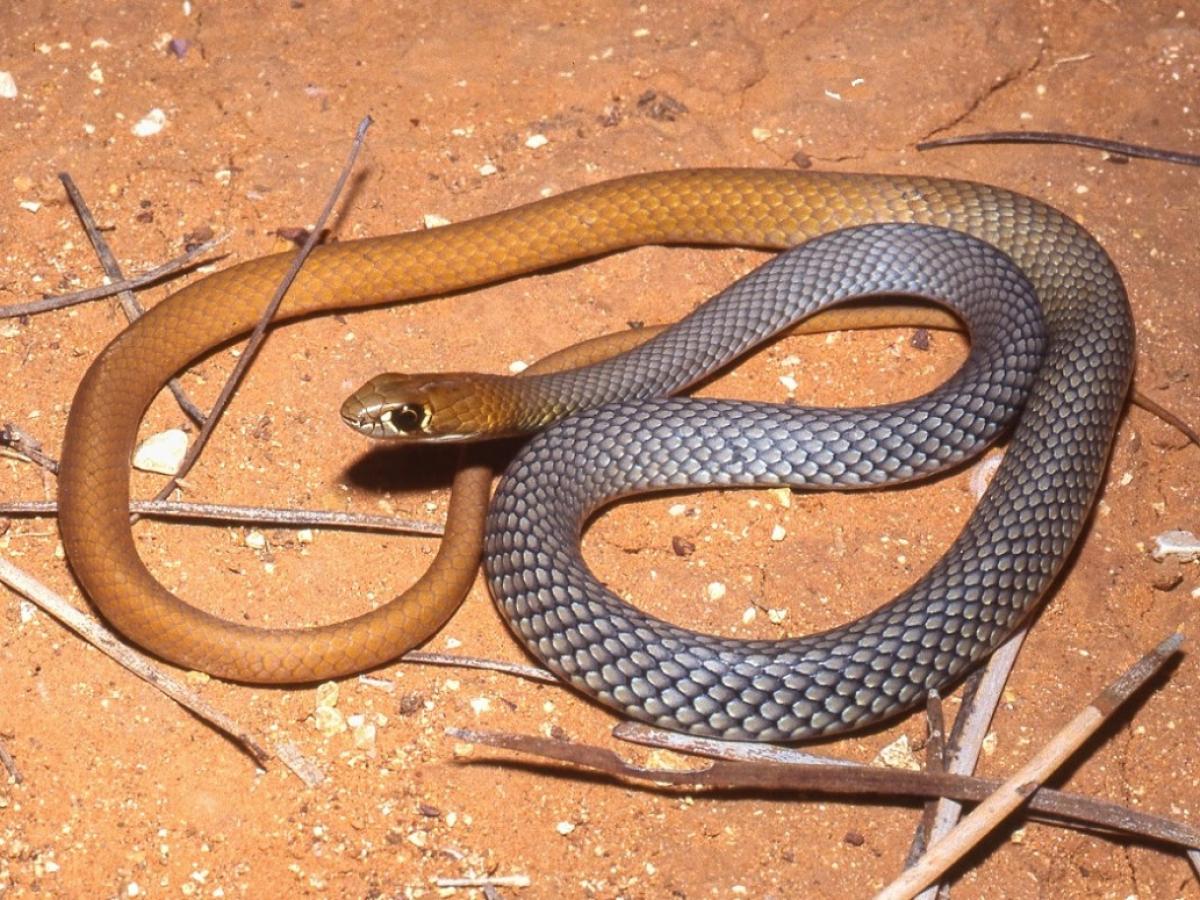Speedy new species of snake uncovered in Australia

A photo of a newly identified species of snake, the desert whip snake, Demansia cyanochasma. Photo by Mark Hutchinson.
A new species of snake has been identified for the first time by a team of researchers from the University of Adelaide, the South Australian Museum and the Western Australian Museum.
The desert whip snake is the newest of 15 species of whip snake found in arid habitats and outback towns across Australia, including parts of Western Australia, South Australia, the Northern Territory and Queensland.
In the past, the desert whip snake has been mistaken for other species of whip snake, but researchers examined tissue specimens and found it has different traits to its close relatives.
“Unlike other species of whip snake, the desert whip snake has a blueish body with a copper head and tail. It also doesn’t have as much black on its scales as its closest relative,” said the University of Adelaide’s Dr James Nankivell, a DNA researcher and first author of the study.
“These subtle but consistent differences in external appearance and genetic evidence have led to us identifying this new species of whip snake.”
The desert whip snake’s unique blue coloured body was the inspiration behind its scientific name, Demansia cyanochasma, which means blue gap.
It is a fast moving, slender snake and uses its speed to chase down lizards, before subduing its prey with venom.
“While the desert whip snake is mildly venomous, its bite - while painful - is unlikely to cause humans any serious harm,” said Dr Nankivell.
“Bites from whip snakes are extremely rare as they are very shy and tend to flee at the first sign of danger.”
The desert whip snake can grow to around 90 centimetres and is largely active during the day.
Whip snakes are common in outback areas and the desert whip snake isn’t thought to be at risk of extinction.
“This study continues to highlight the rich diversity of reptiles living in the deserts of Australia,” said Dr Nankivell.
“Our country is home to more species of reptile than anywhere else in the world and there are still even more species just waiting to be discovered.”
The same genetic approach has been used recently to identify four new species of Sand Dragon in South Australia.
This latest research on the desert whip snake has been published in the journal Zootaxa.
Media contact
Jessica Stanley, Media Officer, The University of Adelaide. Mobile: +61(0)422 406 351.
Email: jessica.stanley@adelaide.edu.au
